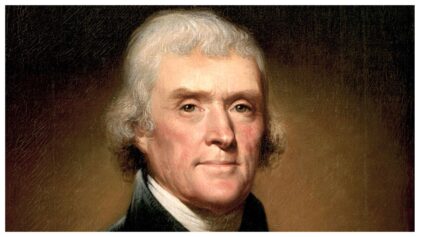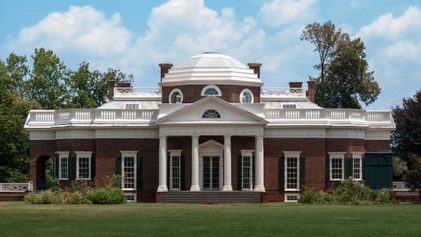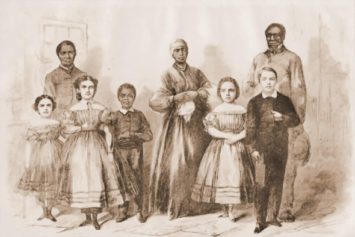“We hold these truths to be self-evident, that all men are created equal, that they are endowed by their Creator with certain unalienable Rights, that among these are Life, Liberty and the pursuit of Happiness…”
This week we celebrate the independence declared and won during the founding era of the nation. Celebrating the Declaration of Independence brings annual focus to the primary author of the document, Thomas Jefferson. Now, 236 years later, Jefferson is still the subject of competing claims about his life, his faith and his beliefs.
Jefferson’s declaration was an enigma. He proclaimed that all men were equal and possessed natural rights. However, as Jefferson wrote those words, he owned slaves whose natural rights were not respected or protected. Not long after he wrote the Declaration of Independence, his views on race became the basis for the movement to deport freed blacks to Africa or the West Indies. Jefferson believed blacks to be inferior to whites and supported efforts to establish a colony of blacks segregated from whites.
Jefferson bought and sold slaves throughout his adult life. He even sent bounty hunters after runaway slaves. Some Christian writers, such as David Barton, claim that Virginia law prevented Jefferson from freeing his slaves. However, this is not true; Jefferson could have emancipated them. Virginia law after 1782 allowed slave owners to free slaves via a deed filed in their county court house. In fact, in 1791, one wealthy Virginian, Robert Carter, began a process of freeing 452 of his slaves. Other slave owners emancipated slaves in keeping with Virginia’s 1782 act to authorize the manumission of slaves. Jefferson himself freed two slaves (he owned well over 200 slaves). Clearly, the law allowed him to give all of his slaves the liberty promised by the Declaration of Independence, but he did not do so.
This discrepancy between words and practice was noted at the time. In 1776, English abolitionist, Thomas Day, wrote, “If there be an object truly ridiculous in nature, it is an American patriot signing resolutions of independence with the one hand, and with the other brandishing a whip over his affrighted slaves.”
Jefferson was a man of rare intellectual gifts and many political accomplishments. While it may be appealing to people of faith to aggrandize Jefferson, we need to see the man for the enigma he was. He was a man who declared the natural rights of man while owning human beings and kept them from enjoying those same rights and freedoms.
Source: Huffington Post


